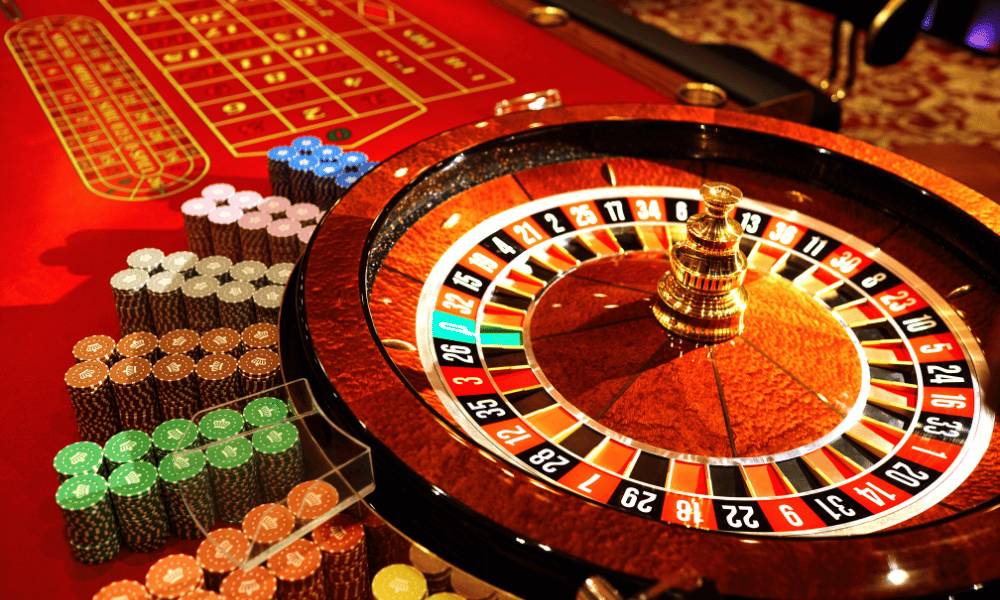The games people choose often reveal deeper insights into their personalities, lifestyles, and cognitive preferences. For instance, why do some individuals thrive in the energetic atmosphere of online casinos like https://scratchplay.gr/, while others prefer the contemplative, analytical world of chess? This article delves into the psychology, personality traits, and lifestyle differences that determine why gambling appeals to some, whereas strategic thinking games captivate others.
The Psychology of Risk and Reward
At its core, gambling is driven by the thrill of uncertainty, risk-taking, and the promise of immediate rewards. This contrasts sharply with chess, where players rely on strategic planning, patience, and intellectual rigor. Understanding these psychological motivations offers deeper insight into why individuals gravitate towards different gaming styles.
The Allure of Immediate Gratification
Casinos cater to individuals seeking quick emotional and monetary rewards. Gambling taps into the dopamine system, releasing powerful neurotransmitters that provide pleasure and excitement. The anticipation and unpredictability of gambling outcomes keep players engaged, craving repeated experiences.
Chess and the Appeal of Intellectual Challenge
Conversely, chess players find fulfillment in intellectual engagement and strategic depth. Winning at chess provides psychological satisfaction derived from mastery and intellectual dominance rather than immediate monetary reward. Chess requires delayed gratification, patience, and methodical thinking, appealing to analytical minds.
Personality Traits Influencing Game Preferences
Personality significantly impacts game choice. Casino enthusiasts often exhibit traits like impulsivity, sensation-seeking, and extraversion, while chess players lean towards introversion, methodical thinking, and analytical precision.
Casino Players: Embracing Risk and Adventure
Casino players often thrive on unpredictability. Sensation seekers, individuals characterized by high energy and social engagement, typically favor gambling activities. Casinos fulfill their desire for thrilling experiences and social interactions.
Chess Players: Methodical and Analytical
Chess players are frequently analytical, introspective, and deliberate. These individuals enjoy detailed planning and intellectual problem-solving. Their preference for chess aligns with traits such as high cognitive engagement, patience, and a lower desire for risk.
Lifestyle Factors and Game Preferences
Beyond psychology, lifestyle choices significantly influence whether individuals prefer gambling or strategic gaming like chess. Social circles, leisure activities, career paths, and even educational background shape these preferences.
Social Environment and Peer Influence
Social environments significantly influence gambling behaviors. People surrounded by gambling-friendly communities often find casinos appealing. Conversely, chess players often emerge from environments emphasizing intellectual achievements and structured leisure activities.
Career and Educational Influence
Individuals involved in careers demanding analytical and strategic thinking, such as science, engineering, or academia, often gravitate toward chess. Conversely, those in dynamic, high-pressure fields, such as sales or business development, may prefer the excitement and spontaneity of casino games.
The Role of Cognitive Skills
Different games demand unique cognitive skills. Chess demands logical reasoning, foresight, and pattern recognition, while gambling requires managing emotions, recognizing probability intuitively, and embracing uncertainty.
Cognitive Flexibility in Gambling
Casino players must rapidly adapt to changing circumstances, managing emotional ups and downs and quick decision-making under uncertainty. They rely more on intuitive judgment rather than lengthy analytical processes.
Cognitive Endurance in Chess
Chess players exercise cognitive endurance, long-term planning, and deep analytical thinking. Their strategic focus on long-term outcomes sharply contrasts the immediate, short-term rewards central to gambling.
Cultural Perspectives on Gambling and Chess
Cultural contexts significantly influence gaming preferences. Societies differ widely in their acceptance, promotion, or stigmatization of gambling and intellectual games like chess.
Gambling Across Cultures
In many cultures, gambling is celebrated as a social event or festive activity. The cultural normalization of gambling strongly influences individuals’ perceptions and behaviors, making casino play a popular leisure activity.
Chess as Cultural Heritage
Chess holds cultural prestige in societies valuing intellectual accomplishments. Countries with strong educational traditions often promote chess, contributing to its reputation as an intellectual pursuit rather than merely entertainment.
Emotional and Mental Health Implications
Both gambling and chess significantly affect mental health, albeit differently. Understanding these implications is critical for promoting responsible engagement in either activity.
Emotional Rollercoaster of Gambling
Casino gaming can heighten emotional volatility due to fluctuating fortunes, wins, and losses. While exciting, this volatility can also lead to stress, anxiety, and potentially problematic gambling behaviors if not managed responsibly.
Mental Resilience through Chess
Chess fosters mental resilience, emotional regulation, and patience. Players often experience improved cognitive skills, stress management abilities, and emotional stability due to disciplined, analytical thinking required by the game.
Technological Advances Influencing Preferences
Technological advances shape the accessibility and popularity of gambling and chess, significantly impacting their respective communities.
Online Gambling Accessibility
Online casinos offer convenience, immediacy, and anonymity, attracting players who appreciate rapid, accessible entertainment. Technology has broadened gambling demographics, bringing in younger, tech-savvy players.
Digital Platforms Elevating Chess
Online platforms and chess streaming communities have revitalized interest in chess, drawing younger audiences and expanding global engagement. Platforms like Chess.com and Twitch significantly boosted chess visibility, making strategic gaming more accessible and socially engaging.
Balancing Entertainment and Responsibility
Whether preferring casino games or chess, responsible participation is essential. Recognizing personal limits and adopting responsible gaming strategies ensures sustainable enjoyment and psychological wellbeing.
Responsible Gambling Practices
Casino platforms promote responsible gambling through self-regulation tools, including loss limits, deposit controls, and self-exclusion options. Educating players about risks fosters healthier gaming habits.
Balanced Chess Engagement
Chess, although generally beneficial cognitively, also requires balance to prevent burnout or obsession. Structured play schedules and mindful participation maintain healthy engagement.
Conclusion: Understanding Your Game Choice
Whether you find thrill in gambling or intellectual satisfaction in chess, your game preference provides significant insight into your personality, lifestyle, and cognitive style. Acknowledging these differences allows players to enjoy their chosen games responsibly, balancing excitement with mental wellbeing. Ultimately, the appeal of either casinos or chess depends significantly on individual preferences shaped by psychological traits, lifestyle choices, and cultural influences.





